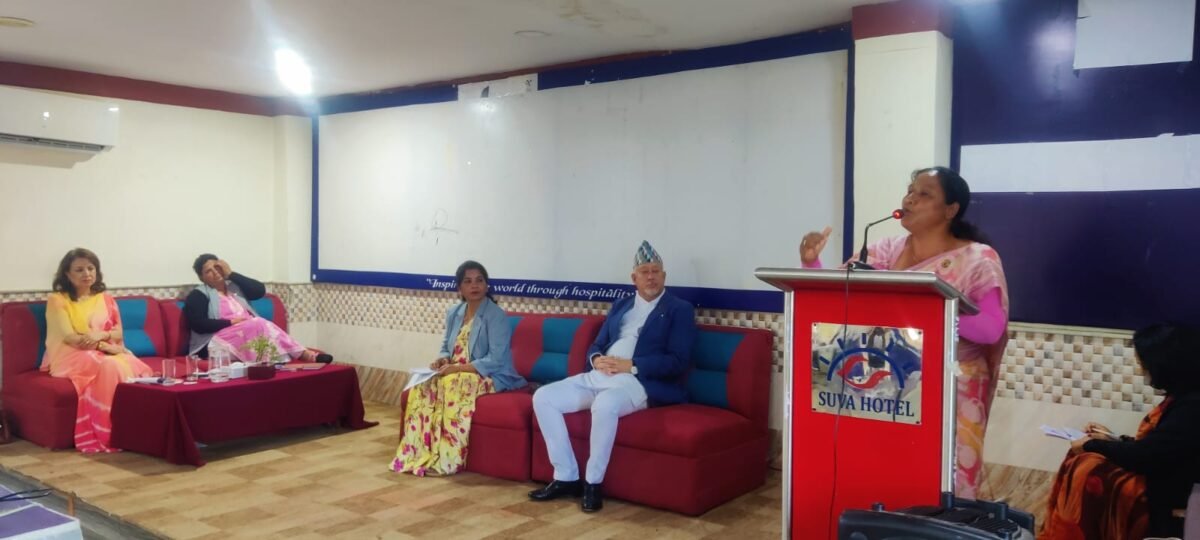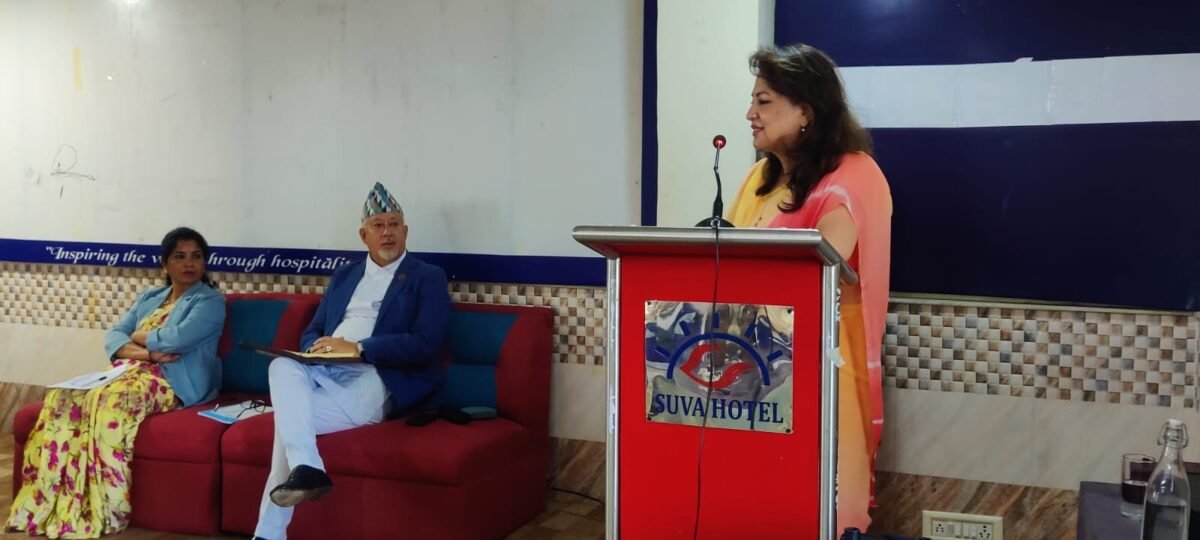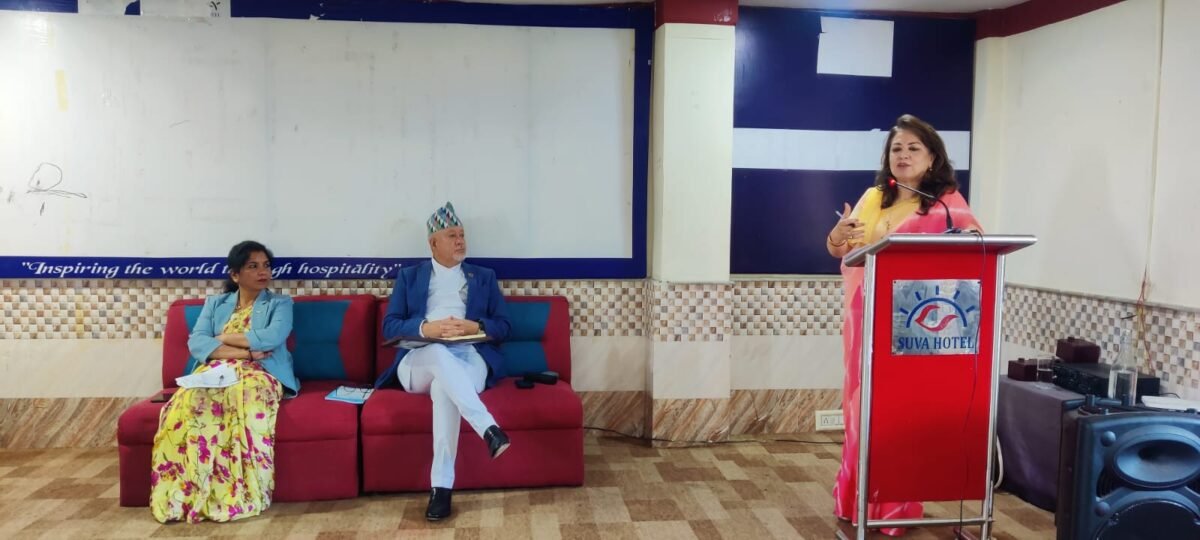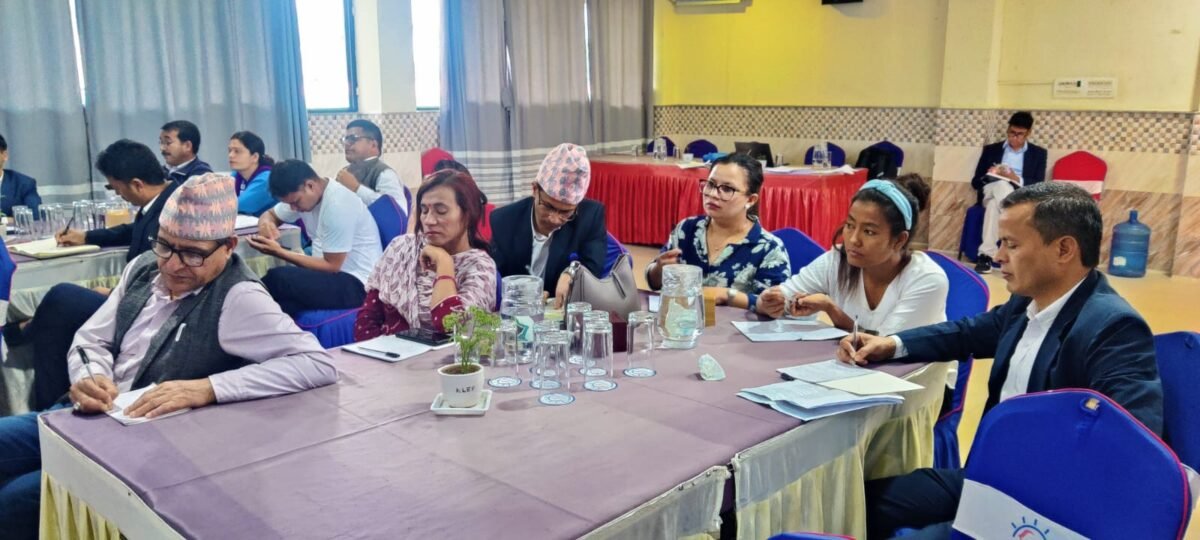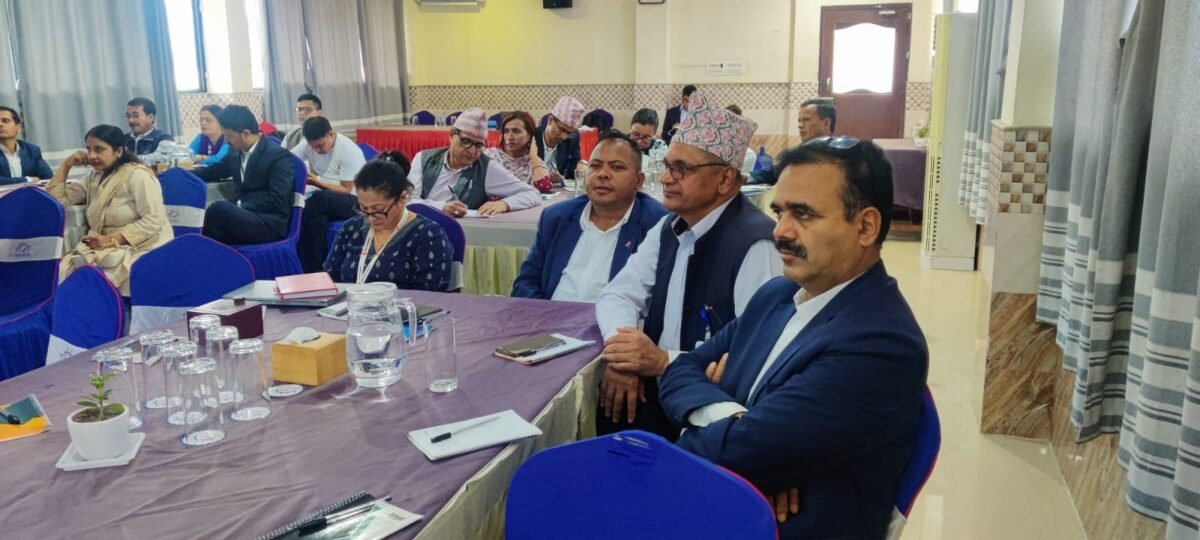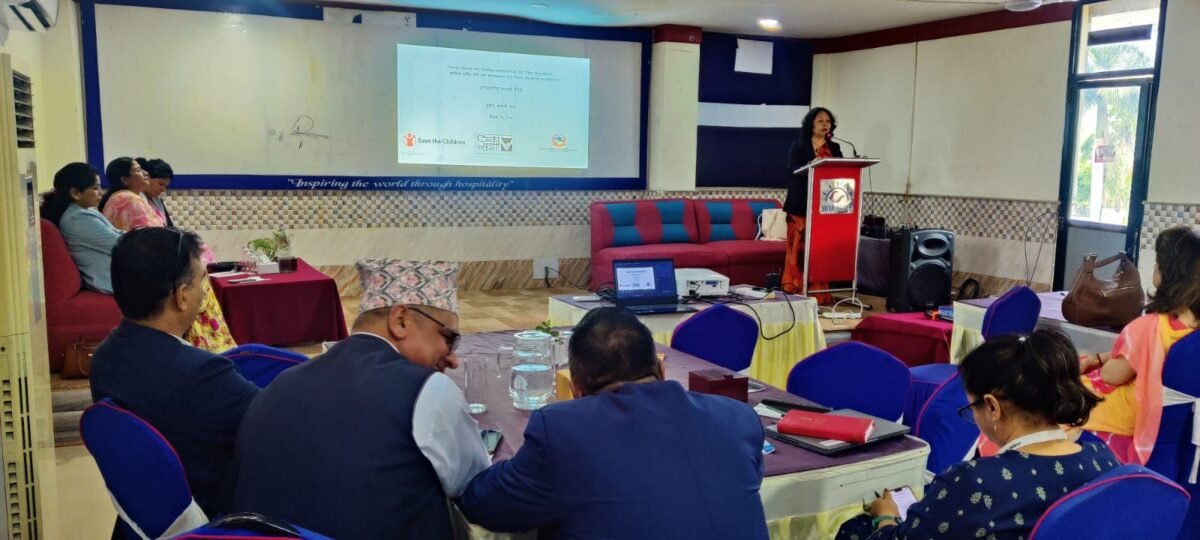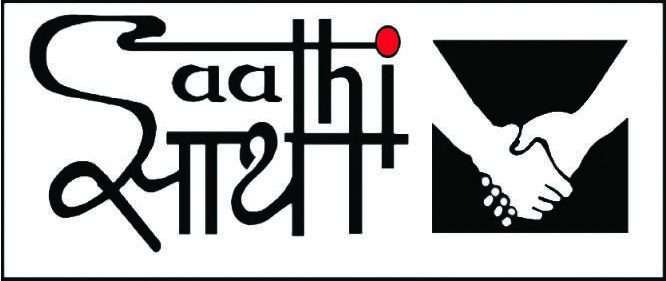Surkhet, April 29 – A high-level consultative workshop aimed at integrating the Concluding Observations (COBs) of the UN Convention on the Elimination of All Forms of Discrimination Against Women (CEDAW) into Karnali Province’s annual plans and programs was held in Surkhet.
The event was jointly organized by Saathi and the Ministry of Women, Children, and Senior Citizens (MoWCSC), with support from Save the Children International. It brought together provincial lawmakers, government officials, and civil society representatives to discuss gender mainstreaming and the government’s accountability to its international commitments.
Rajeev Bikram Shah, Minister for Economic Affairs and Planning of Karnali Province, emphasized the urgency of investing in the education and economic empowerment of women and girls. “For a just and equitable society, our provincial plans must prioritize programs that enhance education and economic independence of women and girls,” he stated, reaffirming the government’s commitment to resource allocation for such initiatives.
Kalyani Khadka, Provincial Assembly Member, highlighted the importance of concluding Nepal’s long-delayed Transitional Justice process and ensuring full implementation of the Second National Action Plan on UNSCR 1325 and 1820, in line with CEDAW’s recommendations on Women, Peace, and Security (WPS). Drawing attention to the disproportionate impact of conflict-related sexual violence on Karnali, she called for legal and policy measures to support survivors who remain unheard and unreached due to the absence of laws and reparations.
She also raised concerns about the reliance on secondary data for reporting and advocated for the establishment of a robust primary data system to effectively monitor progress and measure impact of gender equality efforts.
Urmila BK, Provincial Assembly Member and former Minister of Water Resources and Energy Development, emphasized the need to institutionalize gender-responsive budgeting through an intersectional lens, to ensure inclusion of women and girls from the most marginalized communities. Referring to the CEDAW recommendation to lower the legal marriage age from 20 to 18 years, she called for a nationwide dialogue involving all stakeholders, noting the sensitivity and complexity of the issue within Nepal’s unique socio-cultural context.
Laxmi Basnet, Secretary at MoWCSC and chair of the event, underscored the state’s obligation to implement the recommendations made against Nepal’s 7th Periodic Report to the CEDAW Committee. “This workshop is a step forward in disseminating the CEDAW Concluding Observations. We urge provincial governments to start internalizing these recommendations from this fiscal year itself,” she said.
Bandana Rana, former President of Saathi and current member of the CEDAW Committee, described the workshop as a powerful example of effective collaboration between government and civil society in advancing women’s rights. As part of her presentation, she sensitized participants to the CEDAW framework and its relevance, and shared the latest set of Concluding Observations (COBs) issued by the Committee following the review of Nepal’s 7th Periodic Report in February.
Rana emphasized the urgent need to translate Nepal’s international commitments under CEDAW into concrete actions—especially those addressing the needs of women and girls facing multiple and intersecting forms of discrimination, including survivors of sexual and gender-based violence. She drew attention to CEDAW’s call for 50% gender parity in political and public life, contrasting it with Nepal’s current legal guarantee of only 33% representation for women.
Urging the provincial government to consult the CEDAW COBs in every stage of policy planning and program design, she stressed that these are not generic recommendations—they are carefully tailored to Nepal’s context, based on thorough review of state and shadow reports submitted by various stakeholders. She further noted that the COBs represent one of the most valuable policy tools available to Nepal, calling them a “high-level expert guidance document provided without consultant costs.”
A presentation by the Ministry of Social Development provided an overview of the current status of women and girls in Karnali Province and outlined the provincial government’s priorities in advancing gender justice.
Participants in the workshop—including Provincial Assembly Members, ministry secretaries, planning division heads, civil society representatives, and media—engaged in discussions on pressing issues such as sexual and gender-based violence, harmful traditional practices including child marriage and chhaupadi, and the persistence of gender stereotypes. The debate around lowering the legal marriage age sparked mixed reactions, with many agreeing that decisions should be guided by evidence, international best practices, and Nepal’s contextual realities.
The event convened 35 high-level stakeholders and marks a significant step toward aligning provincial planning with Nepal’s international human rights obligations. CEDAW’s latest set of Concluding Observations, issued following Nepal’s 7th Periodic Report, serve as a roadmap for achieving substantive equality for women and girls in the country.
The event was part of the SANKALP program, an initiative of Save the Children to strengthen civil society organizations (CSOs). Saathi has been working as the gender technical partner in this program, supporting consortium partners in mainstreaming gender and intersectionality in their policies and programs. Through SANKALP, Saathi aims to build the capacity of partner organizations to improve the quality of their programming from a gender-transformative perspective. It also helps partners deepen their understanding of gender issues and enhance their engagement with provincial governments on gender, intersectionality, and social inclusion.

